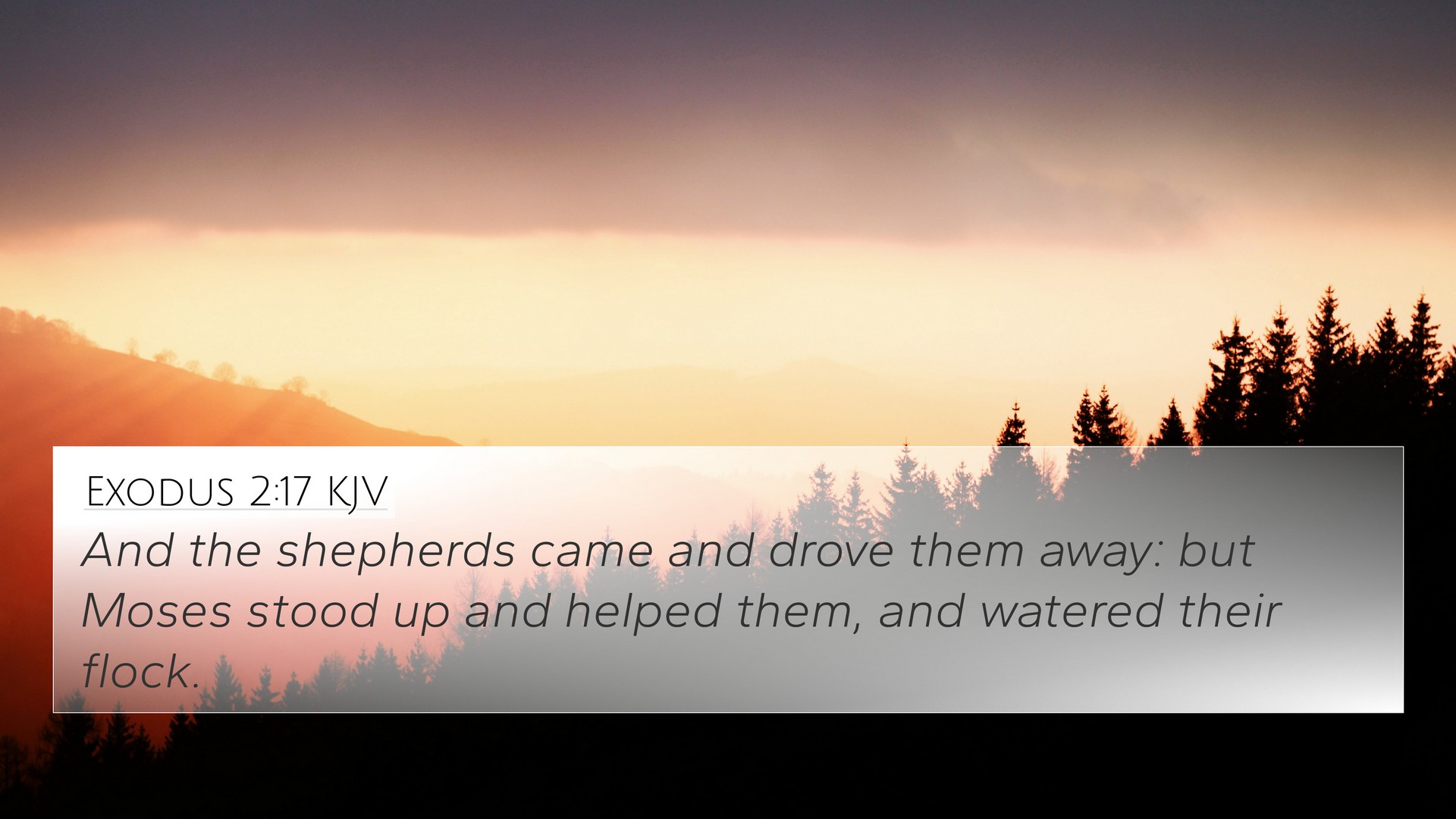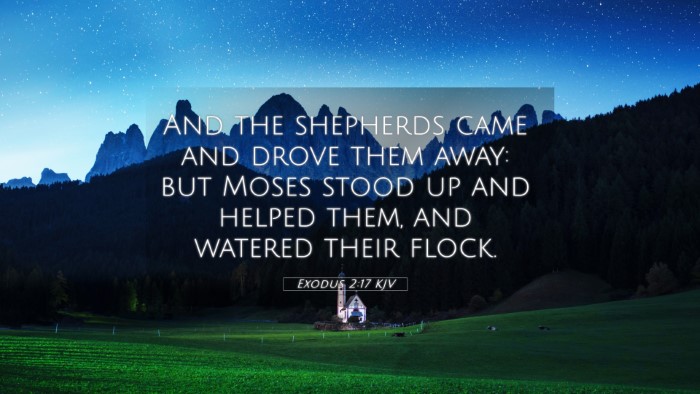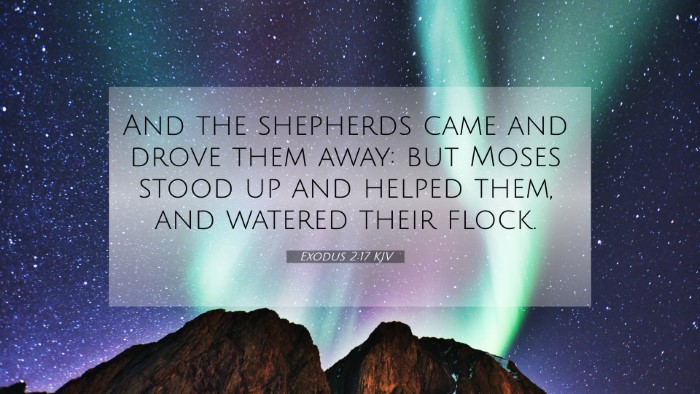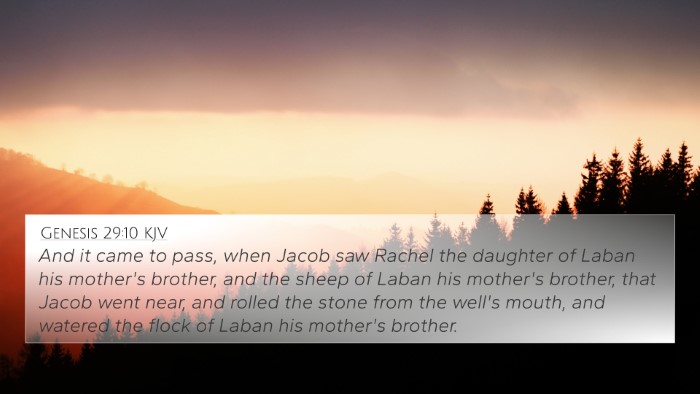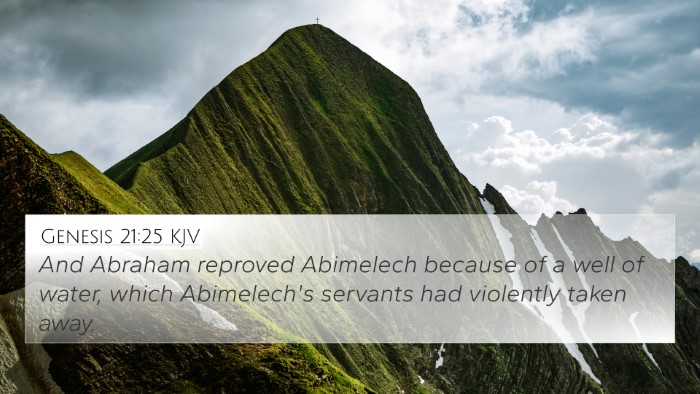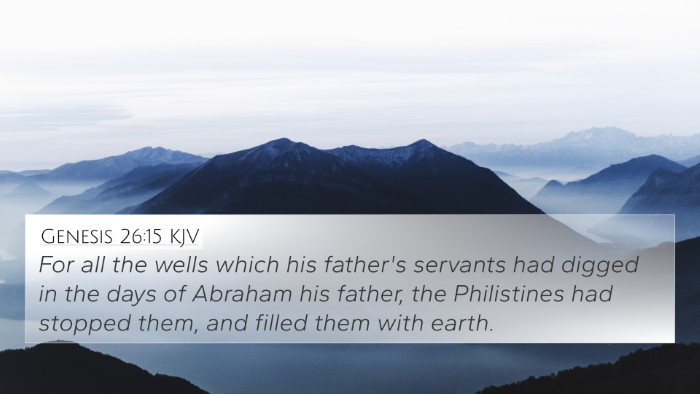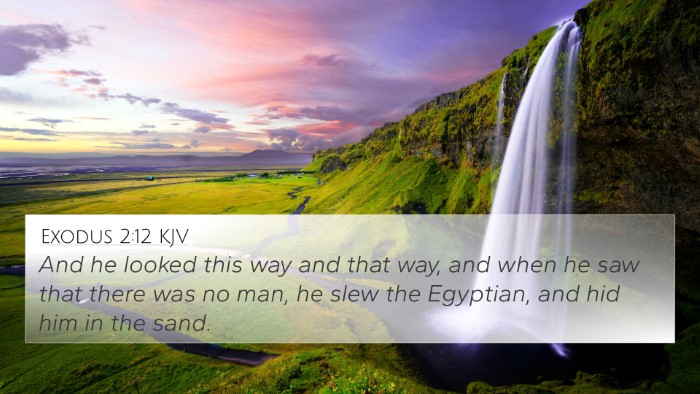Understanding Exodus 2:17
Exodus 2:17 states, "And the shepherds came and drove them away: but Moses stood up and helped them, and watered their flock." This verse captures an important moment in the life of Moses, showcasing his character and foreshadowing his role as a deliverer of the Israelites.
Summary of Insights
This passage can be analyzed through various public domain commentaries, which shed light on its meaning and implications.
Character of Moses
- Matthew Henry: Henry emphasizes Moses's courage and compassion in this verse, contrasting it with the selfish behaviors of the shepherds. His willingness to assist the priest's daughters is a glimpse into his future as a leader who will stand up for the oppressed.
- Albert Barnes: Barnes comments on the significance of this act, suggesting that it illustrates Moses's innate leadership qualities and his early display of justice and advocacy. These traits are vital for his eventual role in delivering the Israelites from Egypt.
- Adam Clarke: Clarke highlights the social dynamics at play, noting that Moses intervened to aid women in distress, thus breaking social barriers and demonstrating virtue that would later define his character as a prophet and leader.
Thematic Connections
This verse serves as a thematic bridge, connecting other biblical passages that highlight the themes of leadership, justice, and advocacy:
- Compare this with Isaiah 1:17, which urges leaders to seek justice and defend the oppressed.
- Micah 6:8 echoes the sentiment of acting justly, loving mercy, and walking humbly with God.
- In Acts 7:22-29, Stephen recounts Moses's actions as indicative of his role as a future leader.
- Romans 15:1 encourages us to bear with the failings of the weak, similar to Moses’s actions in Exodus 2:17.
Cross-References with Exodus 2:17
Several Bible verses relate directly or thematically to Exodus 2:17:
- Exodus 2:16: Provides context on the situation Moses encounters.
- Exodus 18:21: Discusses the selection of leaders, paralleling Moses's qualities.
- Job 29:12: Reflects on the responsibility of aiding those in need, akin to Moses's actions here.
- Luke 10:34: The parable of the Good Samaritan mirrors Moses’s willingness to help others.
- Galatians 6:2: Paul encourages believers to carry each other's burdens, reminiscent of Moses's support for the daughters.
Importance of Cross-Referencing
The process of cross-referencing Bible texts is crucial for deeper understanding and thematic connections, as seen in the way Exodus 2:17 links to both Old and New Testament teachings. Tools for cross-referencing help in discovering the intricate relationships between various verses, enriching our biblical study.
Tools for Bible Cross-Referencing
Utilizing a Bible concordance or cross-reference Bible study guide can greatly facilitate the identification of connections between scriptures. These tools enable readers to:
- Discover Bible verses that relate to each other.
- Utilize a comprehensive Bible cross-reference system.
- Engage in comparative Bible verse analysis to deepen scriptural insight.
Interpreting Biblical Themes
Exodus 2:17, through its connections, allows for a rich exploration of themes such as justice, leadership, and service to others. When we engage in inter-Biblical dialogue, we can better grasp the attributes and actions of biblical figures like Moses, and how they relate to God's overarching narrative.
Learning from Moses
Moses serves as a model for how we should act in the face of injustice. His courage to confront the shepherds and help the distressed women can inspire believers today to advocate for the vulnerable and oppressed within their own communities.
Conclusion
In conclusion, the examination of Exodus 2:17 reveals essential qualities of Moses that are foundational for understanding his future role as a leader. By utilizing cross-referencing methods and tools, readers can enhance their comprehension of scriptural passages, drawing upon a rich tapestry of biblical connections that inspire and instruct in matters of faith and life.
